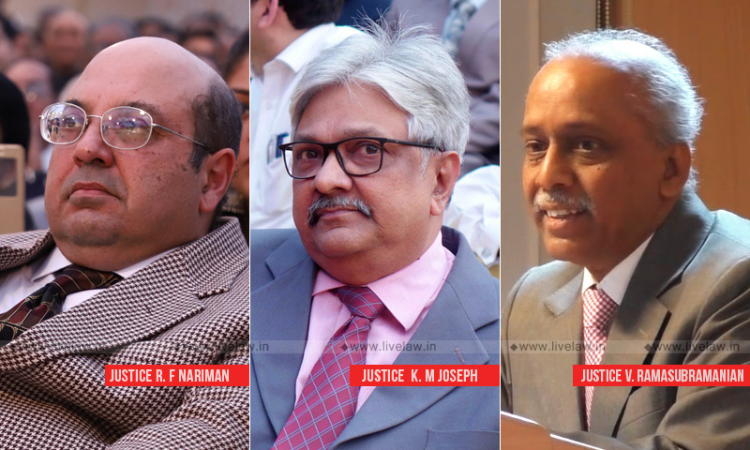When Abduction Is Followed By Murder, Court Can Presume That Abductor Is The Murderer : SC
LIVELAW NEWS NETWORK
3 Jun 2020 7:48 PM IST

Next Story
3 Jun 2020 7:48 PM IST
A 3-judge bench of the Supreme Court has upheld the convictions for the abduction and murder of Tamil Nadu politician, M K Balan in 2001.The case was referred to the 3-judge bench following a split verdict by a division bench.In 2016, a bench comprising Justices V Gopala Gowda and Arun Mishra delivered split verdicts in the case, with the former acquitting the accused and the...
